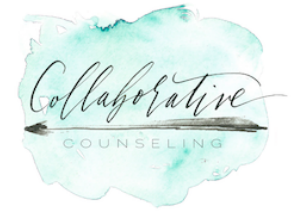|
So often, people engage in practices to enhance or improve their happiness or their health, but do it for the wrong reasons. Someone may visit the gym three times a week, not because they really care for themselves, but because inside their mind, they hate their body and want it to look different so that they can love it (or someone else can). These motivations are not entirely wrong, exercising and eating healthy is wonderful, but if done out of a hate for oneself, the results will rarely give way to a deep, lasting happiness. Because the happiness is contingent on how their body looks. When self-talk says “Ugh gross, you’re so fat - work it off, pump it, jog, jog, jog.” then when the weight comes off the self-criticism will find something else to pick on you about or you’ll hate yourself still if you can’t keep the weight off.
The key is acceptance. When we can acknowledge our humanness, accept who we are, just as we are and then choose health and wellness because we care about ourselves so much, that is self-compassion. What drives you to eat healthy or exercise? Is it because you love yourself or you hate yourself? Is it to try and impress someone else or attain their approval of you? These motives will not sustain. The truth about being human is that we will all try and fail many times in life. We will mess up, make mistakes and let others down. That’s being human. What’s important is to own and accept these failures omitting shame, make amends or apologizes if needed, and then show kindness to ourselves, knowing we are human and that being perfect is not attainable for anyone. Perfection drives most people to self-hate and hold unattainable standards for themselves. Self-compassion, allows oneself to accept themselves (failures and all), choose to believe they are doing the best they can and then move forward in self-love towards attainable goals and standards. If you’re new to the concept of self-compassion, here’s a brief overview to get you started. Self- compassion is essentially showing care and concern for yourself just as you would a dear friend. Unfortunately, most of us do not treat ourselves gently, or care for our innermost thoughts with compassion. For as much as we may be sacrificial, nurturing, caring individuals on the outside, many of us speak negatively to ourselves behind closed doors and in the closets of our minds. But how can we really show genuine love and compassion to others if we don’t even know how to show that same care to ourselves? The concept is simple in theory but like most skills, takes practice to master. Dr. Kristen Neff, author and professor of Communications and Self-compassion gives us a starting place for understanding what self-compassion is. “Self-compassion involves acting the same way towards yourself [as you would a dear friend] when you are having a difficult time, fail, or notice something you don’t like about yourself. Instead of just ignoring your pain with a “stiff upper lip” mentality, you stop to tell yourself “this is really difficult right now,” how can I comfort and care for myself in this moment? Instead of mercilessly judging and criticizing yourself for various inadequacies or shortcomings, self-compassion means you are kind and understanding when confronted with personal failings – after all, who ever said you were supposed to be perfect?” In her book ‘Self-Compassion’ and her 8-week program ‘Mindful Self-Compassion’, Dr. Neff encourages a change in mindset through exercises that promote self-care. On her website self-compassion.org there are 8 simple exercises you can practice at home. These exercises highlight the following: • How would you treat a friend? • Taking a Self-Compassion Break • Self-Compassion through writing • The criticizer, the criticized and the compassionate observer • Changing your critical self-talk • Identifying what you really want • Taking care of the care-giver
3 Comments
|
AuthorA collaboration of writing we love to share. Archives
March 2020
Categories |

 RSS Feed
RSS Feed